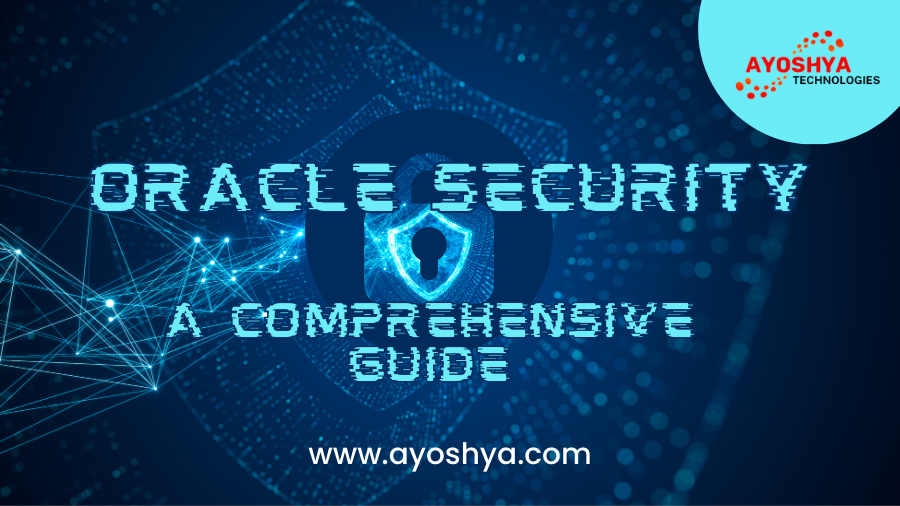A Comprehensive Guide to Oracle Security
In the rapidly advancing digital landscape, where data is the lifeblood of enterprises, securing databases is paramount. Oracle, a key player in the database management realm, offers robust security measures to safeguard sensitive information. In this detailed exploration, we delve into the multifaceted world of Oracle security, unraveling its features, best practices, and why it’s crucial for businesses in the digital age.
Understanding the Oracle Security Landscape
1. The Role of Oracle in Data Security
Oracle plays a pivotal role in ensuring data security for organizations worldwide. We’ll explore how Oracle’s security features go beyond traditional measures, addressing contemporary threats and compliance requirements.
2. Layers of Oracle Security
Security operates on a multi-layered approach. From authentication and authorization to encryption and auditing, we’ll dissect each layer, providing insights into how they collectively fortify the database infrastructure.
3. Authentication and Authorization Mechanisms
Authentication and authorization are the gatekeepers of Oracle databases. We’ll delve into the various mechanisms, including password policies, role-based access control (RBAC), and fine-grained access control, that empower administrators to control user access and actions.
Key Features of Oracle Security
1. Advanced Encryption Techniques
Data encryption is a cornerstone of security. We’ll explore advanced encryption techniques employed by Oracle, ensuring that data remains confidential and integral, whether at rest or in transit.
2. Audit Trails and Monitoring
Oracle provides robust auditing capabilities, allowing organizations to track and monitor database activities. We’ll discuss how audit trails serve not only as compliance tools but also as proactive measures to identify and mitigate potential security threats.
3. Database Activity Monitoring (DAM)
Database Activity Monitoring is a proactive security measure that goes beyond traditional auditing. We’ll shed light on how DAM helps organizations detect and respond to suspicious activities in real-time, enhancing overall security posture.
Best Practices for Oracle Security Implementation
1. Regular Security Audits and Assessments
Continuous evaluation is key to a resilient security posture. We’ll outline best practices for conducting regular security audits and assessments, identifying vulnerabilities, and implementing corrective measures.
2. Role-Based Security Policies
Role-based security policies streamline access management. We’ll discuss how organizations can define and enforce role-based policies to ensure that users have the necessary privileges for their roles without unnecessary access.
3. Regular Software Updates and Patch Management
Oracle releases security patches and updates to address vulnerabilities. We’ll emphasize the importance of keeping systems up-to-date with the latest patches to mitigate potential risks associated with security vulnerabilities.
Overcoming Challenges in Oracle Security
1. Balancing Security and Performance
Security measures often introduce overhead. We’ll explore strategies to strike a balance between robust security and optimal database performance, ensuring that one doesn’t compromise the other.
2. Ensuring Compliance with Regulations
Data security regulations are evolving. We’ll discuss the challenges organizations face in ensuring compliance with diverse regulations and offer insights into maintaining a secure and compliant database environment.
Conclusion
In the ever-evolving landscape of cybersecurity, Oracle stands as a stalwart defender of data integrity. Oracle security, with its multi-layered approach and advanced features, is not just a necessity; it’s a strategic imperative for businesses aiming to thrive in the digital era.
FAQs
1. Is Oracle security suitable for small businesses?
Yes, Oracle security features can be tailored to meet the needs of small businesses. The scalability of Oracle security solutions ensures that organizations of all sizes can implement robust data protection measures.
2. How often should organizations conduct security audits?
Organizations should conduct security audits regularly, ideally at least once a quarter. However, the frequency may vary based on factors such as industry regulations, the volume of sensitive data, and the evolving threat landscape.
3. Can Oracle security be integrated with other cybersecurity tools?
Yes, Security solutions are designed to integrate with a variety of cybersecurity tools. Integration with tools such as SIEM (Security Information and Event Management) enhances the overall security ecosystem.
4. What role does encryption play in Oracle security?
Encryption is a fundamental aspect of security, ensuring that data remains confidential and protected from unauthorized access. It encrypts data at rest and in transit, providing a robust defense against data breaches.
5. Does security provide protection against external cyber threats?
Yes, It is designed to protect against both internal and external cyber threats. The multi-layered approach includes mechanisms to thwart unauthorized access, detect suspicious activities, and safeguard databases from a wide range of cyber threats.
You may be interested in:



